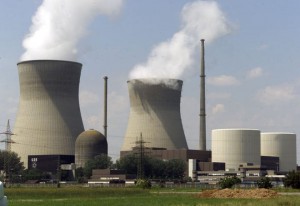 When fossil fuels become too expensive, people turn to energy sources that are much cheaper and readily available in abundant quantities. Nuclear energy was long envisioned after the realization that petroleum and other non-renewable energy sources are slowly running out. It has seen a number of uses since it was made commercially available to the public. Most large vessels like aircraft carriers and submarines today run on nuclear energy. Even cities are run on nuclear energy, i.e., through nuclear power plants in highly industrialized countries.
When fossil fuels become too expensive, people turn to energy sources that are much cheaper and readily available in abundant quantities. Nuclear energy was long envisioned after the realization that petroleum and other non-renewable energy sources are slowly running out. It has seen a number of uses since it was made commercially available to the public. Most large vessels like aircraft carriers and submarines today run on nuclear energy. Even cities are run on nuclear energy, i.e., through nuclear power plants in highly industrialized countries.
The principle behind the atomic bombs’ massive, destructive power and the nuclear reactors’ efficiency and sustainability is essentially the same. When a radioactive element, such as uranium, is bombarded by a subatomic particle (neutron), the element splits in half, releasing heat energy in the process known as nuclear fission. Excess neutrons, the byproduct of fission, will split the atoms even further, releasing more neutrons and heat energy.
The process continues until it reaches critical mass where fission becomes self-sustainable (chain-reaction). In an uncontrolled state, the result would be catastrophic, such as the explosion of an atomic bomb. But under controlled conditions, it can generate power for electricity, transportation, and tasks that require long periods of uninterrupted service. Nuclear energy is the most promising source of energy today because of its abundant supply and because it requires only a fraction to produce power for the next hundreds of years.
But with this newfound energy source also comes a dangerous byproduct. Just recently, the world was gripped by imminent fallout when the cooling system in Fukushima’s nuclear reactor failed hours after the 8.9 magnitude earthquake. The incident was a race against time and has put neighboring countries at risk of exposure to radiation. A meltdown in one of the facility’s nuclear reactor would have made Japan next to the Chernobyl accident.
Exposure to radiation from radioactive particles and waste products has been the constant source of fear and antagonism against those who advocate the use of nuclear energy as an alternative to fossil fuels. From the standpoint of nuclear energy users, they are more efficient and sustainable as opposed to petroleum and other sources that rely on combustion, and thus pollutant to the air.
Under strict controls and compliance to nuclear safety standards, nuclear power may indeed become the next alternative for years to come. But in retrospect, we cannot get away with the fact, that there are also things that are beyond our control. The recent incident in Japan reminds us just that.
Related Article:






